Phrases. We say them in everyday conversations in order to describe certain societal situations or make light of difficult explanations. However, their specificity sometimes suffer as improper use of the terminology is spread among the masses. Are you guilty of misquoting some of these common phrases? Whether it’s some fine point of grammar or just simple pronunciation, these are 25 phrases that you might be saying incorrectly.

Wrong: case and point
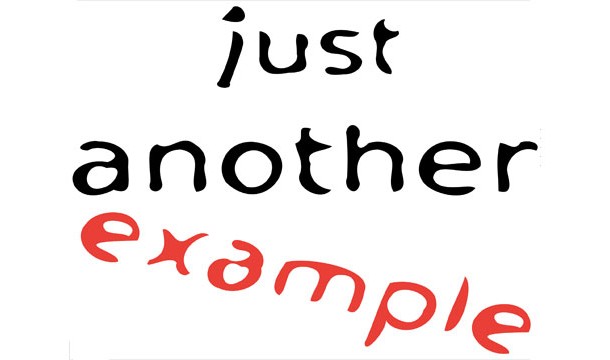 Source: wikipedia, Image: wikipedia
Source: wikipedia, Image: wikipedia Right: Case in point
This is used to bring up an example that proves your argument.
Wrong: one in the same
 Source: wikipedia, Image: wikipedia
Source: wikipedia, Image: wikipedia Right: one and the same
This phrase is used to indicate that two things are exactly alike.
Wrong: nip it in the butt
 Source: wikipedia, Image: andrewhurley via flickr
Source: wikipedia, Image: andrewhurley via flickr Right: nip it in the bud
Nipping something in the bud means you’re ending it before it starts. Nipping something in the butt, well, that means something completely different.
Wrong: scotch-free
 Source: wikipedia, Image: wikipedia
Source: wikipedia, Image: wikipedia Right: scot-free
This means to get away without a deserved punishment.
Wrong: statue of limitations
 Source: wikipedia, Image: wikipedia
Source: wikipedia, Image: wikipedia Right: statute of limitations
It’s a statute, not a statue.
Wrong: fall by the waste side
 Source: wikipedia, Image: wikipedia
Source: wikipedia, Image: wikipedia Right: fall by the wayside
Falling by the wayside means to not keep up with the group.
Wrong: self-depreciating
 Source: wikipedia, Image: wikipedia
Source: wikipedia, Image: wikipedia Right: self-deprecating
To self-deprecate means to undervalue yourself. “Depreciate”, on the other hand, is an term used in economics to indicate that the value of something drops over time.
Wrong: escape goat
 Source: wikipedia, Image: wikipedia
Source: wikipedia, Image: wikipedia Right: scapegoat
Except for goats breaking out of prisons, the correct term is “scapegoat”, which refers to a person or group that bears blame for others.
Wrong: doggy dog world
 Source: wikipedia, Image: wikipedia
Source: wikipedia, Image: wikipedia Right: dog-eat-dog world
Doggy dog world doesn’t even make sense. It’s a dog-eat-dog world where every man is for himself.
Wrong: old timer's disease
 Source: wikipedia, Image: wikipedia
Source: wikipedia, Image: wikipedia Right: Alzheimer’s disease
While it may be for old-timers, that’s not the name.
Wrong: curl up in the feeble position
 Source: wikipedia, Image: wikipedia
Source: wikipedia, Image: wikipedia Right: curl up in the fetal position
It’s a fetus. That’s why it’s called the “fetal position”.
Wrong: make due
 Source: wikipedia, Image: wikipedia
Source: wikipedia, Image: wikipedia Right: make do
While this is more of a spelling issue, to make something due would mean to enforce a deadline. To “make do” is short for “make do well enough”.
Wrong: They read good
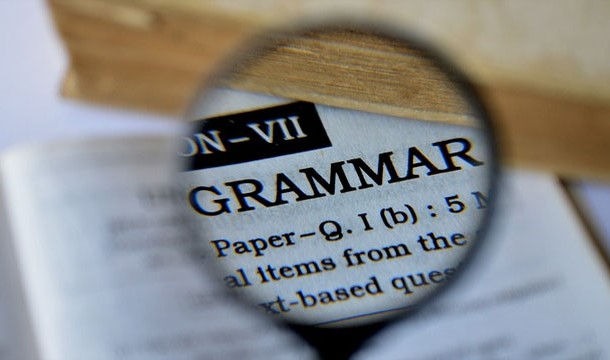 Source: wikipedia, Image: wikipedia
Source: wikipedia, Image: wikipedia Right: They read well
Although it’s more of a middle school grammar lesson, this one is so common that it bears repeating. “Good” is an adjective. It modifies nouns. If you are describing how she reads then you use the adverb “well”.
Wrong: a blessing in the skies
 Source: wikipedia, Image: wikipedia
Source: wikipedia, Image: wikipedia Right: a blessing in disguise
Maybe rain during a drought would really be a blessing in the skies, but that’s not what the phrase is referring to. A blessing in disguise is something bad that actually turns out to be good.
Wrong: Heineken remover
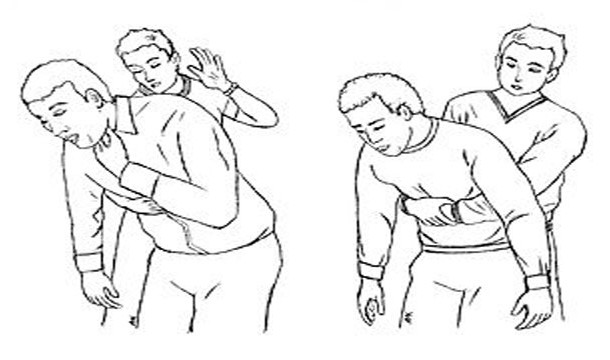 Source: wikipedia, Image: wikipedia
Source: wikipedia, Image: wikipedia Right: Heimlich Maneuver.
Although you very well might be removing Heineken, it’s called the Heimlich Maneuver.
Wrong: making a 360 degree turn in life
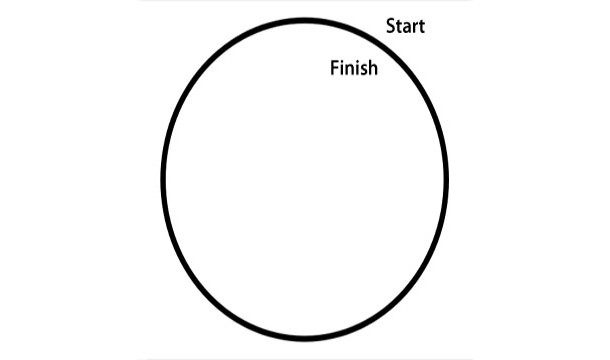 Source: wikipedia, Image: wikipedia
Source: wikipedia, Image: wikipedia Right: making a 180 degree turn in life
If you make a 360 degree turn, you will end up facing the same direction.
Wrong: extracting revenge
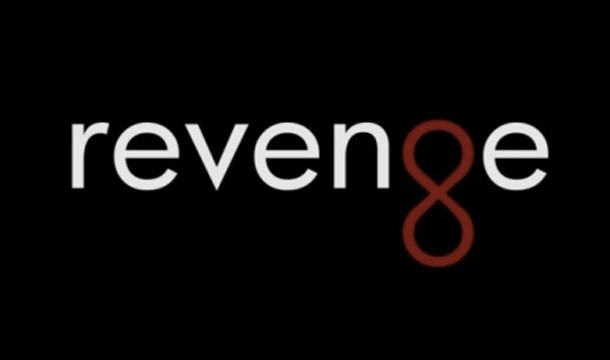 Source: wikipedia, Image: wikipedia
Source: wikipedia, Image: wikipedia Right: exacting revenge
Extracting something means to take it out of something else. Exacting something means to require it. You are exacting revenge, not extracting it.
Wrong: giving someone leadway
 Source: wikipedia
Source: wikipedia Right: giving someone leeway
Leadway isn’t even a word.
Wrong: to hone in
 Source: wikipedia, Image: wikipedia
Source: wikipedia, Image: wikipedia Right: to home in
To hone something means to sharpen it, to home in on something means to get closer or to approach it.
Wrong: you've got another thing coming
 Source: wikipedia, Image: wikipedia
Source: wikipedia, Image: wikipedia Right: you’ve got another think coming
The entire phrase is, “if that’s what you think, you’ve got another think coming.”
Wrong: hunger pains
 Source: wikipedia, Image: wikipedia
Source: wikipedia, Image: wikipedia Right: hunger pangs
Although the wrong version makes sense (which is why people use it), the original phrase is “hunger pangs”.
Wrong: should of
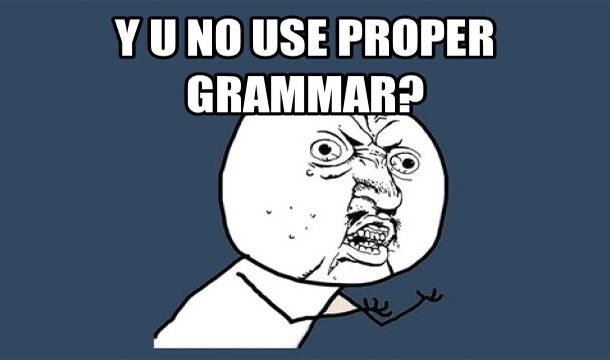 Source: wikipedia
Source: wikipedia Right: should have
Of is a preposition, not an auxiliary verb. When you talk fast they sound the same, but if you’re giving a slow, professional speech, don’t make this mistake!
Wrong: step foot
 Source: wikipedia, Image: wikipedia
Source: wikipedia, Image: wikipedia Right: set foot
Although never “stepping” foot in your friend’s house again sounds ok, the phrase is actually that you are never “setting” foot in your friend’s house again.
Wrong: mute point
 Source: wikipedia, Image: wikipedia
Source: wikipedia, Image: wikipedia Right: moot point
Once again, “mute point” seems to make sense, but it’s actually a “moot point”. The term moot is a legal term that dates back to the 1500s and means that something is open to debate.
Wrong: near miss
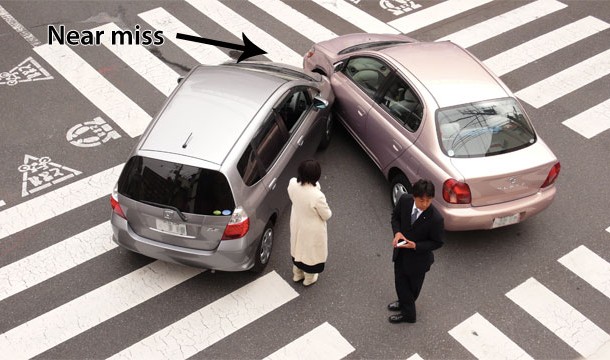 Source: wikipedia, Image: wikipedia
Source: wikipedia, Image: wikipedia Right: near hit
If you’re driving, you barely escape a collision, and you look at your friend to say “wow, that was a near miss!”, then what you are implying is that you actually did have a collision. To nearly miss something means to hit it. To nearly hit something means to miss it.



























